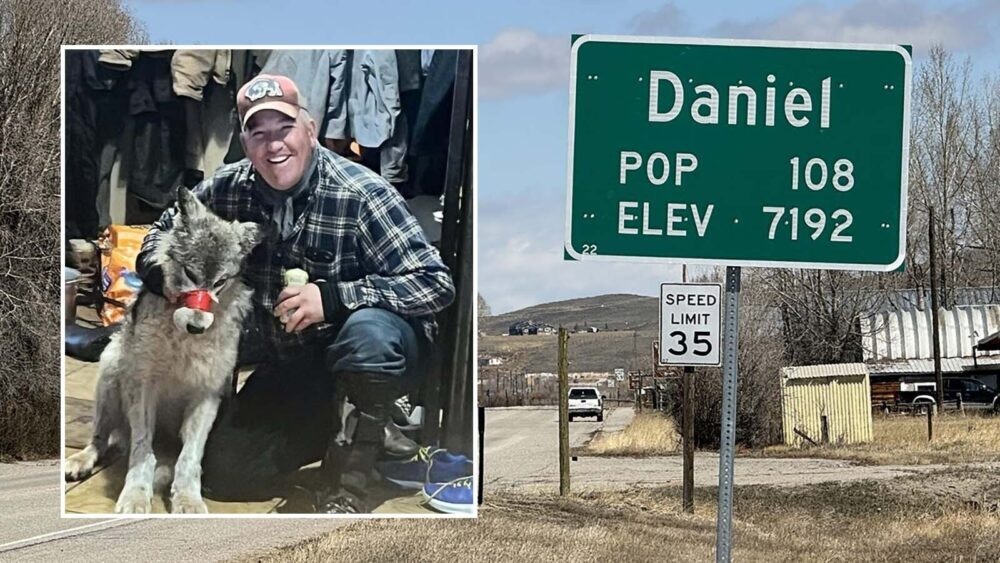A Rock Springs school district announced Thursday in federal court that a student whose transgender identity sparked a parental rights lawsuit in federal court is no longer enrolled in that district.
The student’s transfer negates roughly half of Sean and Ashley Willey’s allegations against Sweetwater School District No. 1, the district alleges in its new motion to dismiss the case, filed Thursday by attorneys Kathleen Chaney and Eric D Hevenor.
Sean and Ashley Willey sued in April, alleging that district staffers were calling their daughter by a male name and pronouns behind their backs, against her therapist’s recommendations and her best interests.
Ashley Willey, as a teacher in a different school in the district, also alleges that the district has been violating her free-speech and religious rights by requiring her to conform to a transgender-names use policy, and by requiring her to withhold information about students from their parents.
U.S. Chief District Court Judge for Wyoming Scott Skavdahl on June 30 temporarily blocked the district from enforcing the second half of the its policy addressing alternate names, because that half could have required staffers to keep students’ identities secret from parents.
Skavdahl emphasized that the Willeys had a chance of winning the portions of their lawsuit addressing that language, because the U.S. Supreme Court has repeatedly pronounced a parental right to the care, control and custody of one’s own children.
The second half of the policy also looked “problematic” under Ashley Willey’s assertions of her own rights, wrote Skavdahl.
Student No More
The Willeys’ daughter is no longer enrolled in SCSD1, according to the district’s motion to dismiss the Willeys’ complaint in the U.S. District Court for Wyoming.
The student has transferred to a school district in New Mexico, where her biological father is, the filing adds.
“The issue is entirely moot as (the student) is no longer a student within the District,” reads the motion.
The district also asked Skavdahl’s permission to file the student’s educational records under seal — that is, not publicly viewable — to show that she has transferred.
The Willeys’ attorney did not immediately confirm this development Friday morning.
Brand New Policy
The district has tailored its “preferred names” policy for the upcoming school year in apparent conformity with Skavdahl’s constitutional concerns.
The new policy says staff must involve parents in students’ alternate-identity decisions “wherever possible.”
It contains a carveout letting staffers hide students’ identities from parents if a counselor or staff member, in consultation with the district’s superintendent and human resources director, finds “that such disclosure would be detrimental to the student’s health or safety.”
Skavdahl’s June order had said he’d consider shaping his preliminary injunction around such a carveout, though none existed at the time.
The district’s new policy says it will “make every effort to reasonably accommodate staff members where possible.”
Still These Religious, Speech Rights
The girl’s transfer to another school doesn’t negate Ashley Willey’s claims that the district is violating her speech and religious rights as a teacher.
The district accuses Ashley Willey of taking her religious rights too far.
“She maintains sincerely held religious beliefs such that she denies the existence of transgender persons while believing in absolute parental authority and truth telling,” reads the district’s filing. “Ms. Willey’s attempt to use the Free Exercise Clause as a sword rather than a shield is in contravention of established Constitutional principles and controlling law.”
Hot Potato
The students’ rights that are allegedly in conflict with Ashley Willey’s religious and free-speech rights came about through a conglomerative hot-potato game between the three branches of federal government.
Congress authored Title VII in the civil rights laws, safeguarding fair treatment within the workplace.
The U.S. Supreme Court in the 2020 case Bostock v. Clayton County ruled that the act’s embargo against “sex” discrimination also protects people from discrimination on the basis of sexual orientation and gender identity.
The Biden Administration in 2021 applied that interpretation to a different portion of law, Title IX, which safeguards fair treatment in education.
Twenty states sued the Biden Administration for its interpretation, and a federal court blocked the government from enforcing that interpretation in those 20 states while the case is ongoing.
But Wyoming was not one of the suing states, because its laws did not conflict with Biden’s interpretation at that time, so the federal interpretation is not blocked in Wyoming.
“Ms. Willey’s right to believe whatever she wishes is absolute, but it does not and cannot override the student’s right to equal protection, education, and the right to be free from mental and physical abuse,” wrote the school district in its filing, which also reiterates the district’s prior defense, that it is merely following federal law. “Just the threat of Ms. Willey exposing a student’s identity would have a chilling effect on that expression in contradiction of the rights guaranteed them under Title IX, other federal law, and the Wyoming Constitution.”
The district’s latter reference touches on the Wyoming Constitution’s promises of equal protection under the law.
Clair McFarland can be reached at clair@cowboystatedaily.com.





